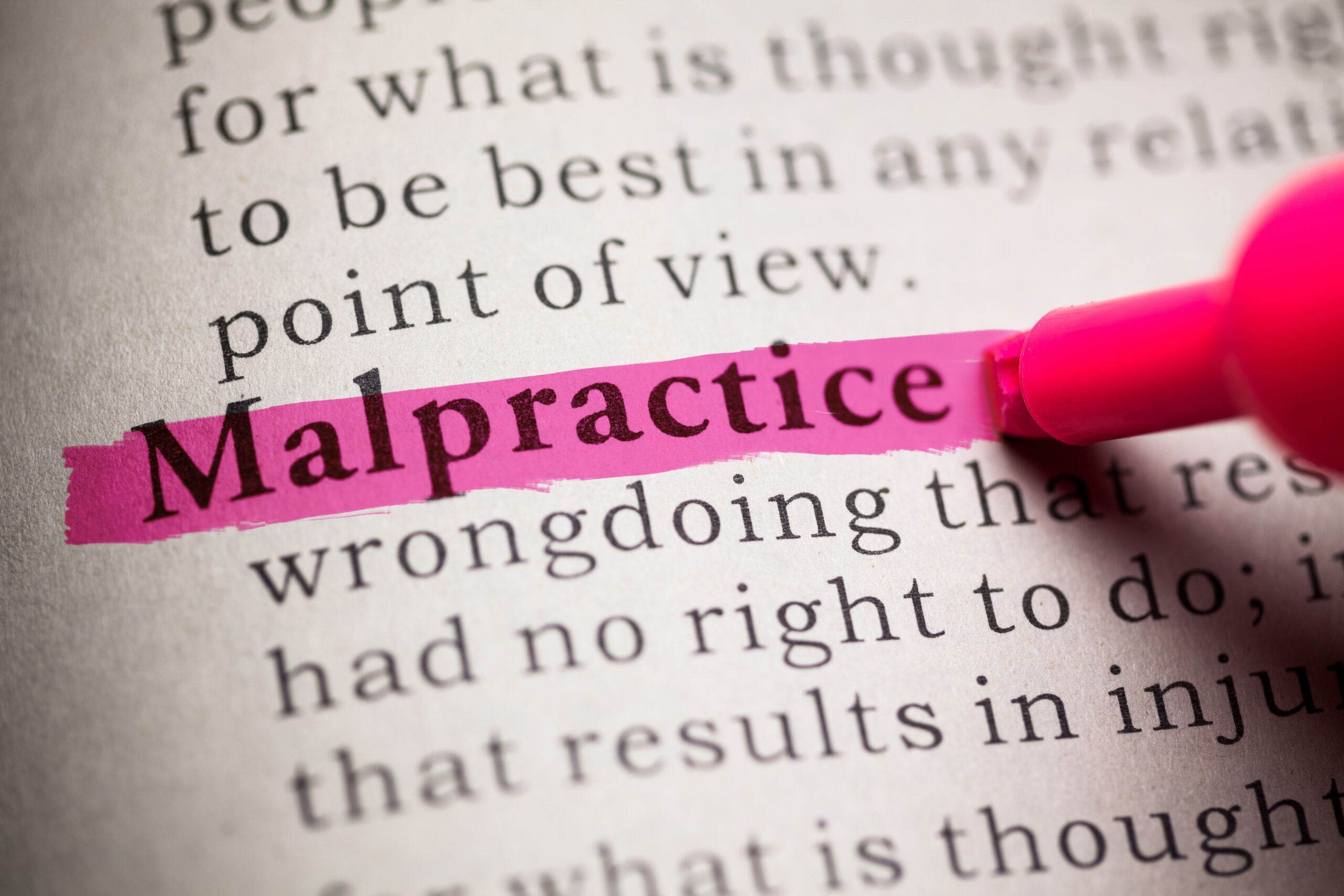When it comes to professional accountability, particularly within the medical field, practitioners who fail to meet expectations are at risk of facing civil malpractice lawsuits and professional disciplinary actions. While these mechanisms share the common goal of maintaining high standards of care and protecting the public, their processes, implications and outcomes differ significantly.
Civil Malpractice Lawsuits: Seeking Compensation
Civil malpractice lawsuits are legal actions taken by patients against healthcare providers who are alleged to have caused harm through negligence or substandard care. The primary objective of a malpractice lawsuit is to obtain financial compensation for the damages suffered by the patient. These damages can include medical expenses, lost wages, pain and suffering and other related costs.
Key Elements of Civil Malpractice Lawsuits
- Duty of Care: The plaintiff must establish that the healthcare provider owed a duty of care to the patient.
- Breach of Duty: There must be evidence that the healthcare provider breached this duty by failing to meet the standard of care expected in their professional field.
- Causation: The plaintiff must prove that the breach of duty directly caused the injury or harm.
- Damages: The plaintiff must demonstrate that they suffered damages, like increased medical costs, pain and suffering or lost wages, as a result of the breach.
The burden of proof in civil malpractice cases lies with the plaintiff, who must present a preponderance of evidence to support their claims. If successful, the outcome is typically a financial settlement or award determined by a judge or jury.
Professional Disciplinary Actions
Professional disciplinary actions, on the other hand, are initiated by licensing boards or regulatory bodies tasked with overseeing the conduct of healthcare providers. These actions aim to uphold the standards of the profession, ensuring that practitioners adhere to ethical and professional guidelines.
Key Elements of Professional Disciplinary Actions:
- Regulatory Oversight: Licensing boards have the authority to investigate complaints against healthcare providers and take disciplinary action if necessary.
- Standards of Conduct: Disciplinary actions are based on violations of professional standards, ethical breaches or conduct unbecoming of the profession.
- Range of Sanctions: Disciplinary measures can include reprimands, fines, mandatory education, suspension or revocation of a medical license.
The process typically involves an investigation, a hearing and a decision by the regulatory body. Unlike civil lawsuits, the focus is not on compensating the patient but on maintaining the integrity and reputation of the profession and protecting public safety.
Interplay and Distinctions
While civil malpractice lawsuits and professional disciplinary actions operate independently, there are scenarios where they intersect and influence each other.
Grounds for Disciplinary Action
When a healthcare provider is found liable in a civil malpractice lawsuit, it does not automatically result in disciplinary action by the licensing board. However, the findings from a malpractice case can trigger a review by the regulatory body. For instance, if a court determines that a provider’s conduct was egregiously negligent, this may prompt the licensing board to investigate further and potentially take disciplinary action.
Separate Proceedings
These are separate proceedings with different standards of proof and outcomes. A healthcare provider may be sued for malpractice and settle the case without admitting wrongdoing. In such instances, the licensing board may still decide to conduct its own investigation based on the complaint or other evidence.
Evidence of Disciplinary Action
In some cases, evidence from disciplinary actions can be used in civil malpractice lawsuits. For example, if a provider has a history of disciplinary actions for similar conduct, this information can be relevant in establishing a pattern of negligence in a malpractice case. Conversely, the outcome of a civil malpractice lawsuit can be used as evidence in disciplinary proceedings to demonstrate a breach of professional standards.
Risk of Losing a Medical License
Not all malpractice cases result in the loss of a medical license. Licensing boards typically reserve the harshest penalties, such as suspension or revocation, for the most serious offenses, including gross negligence, repeated violations or criminal conduct. In many cases, disciplinary actions may involve lesser sanctions, such as fines or mandatory retraining, particularly if the provider’s actions do not pose an ongoing risk to public safety.
Connect With Our Trusted Houston Medical Malpractice Attorneys
Do you believe you suffered an injury or worsening health due to failed treatments that fell below the standard of care expected from a medical professional? The right legal team can make all the difference in your medical malpractice claim.
Contact us at Weycer Law Firm today to schedule a consultation and learn more about your options.

